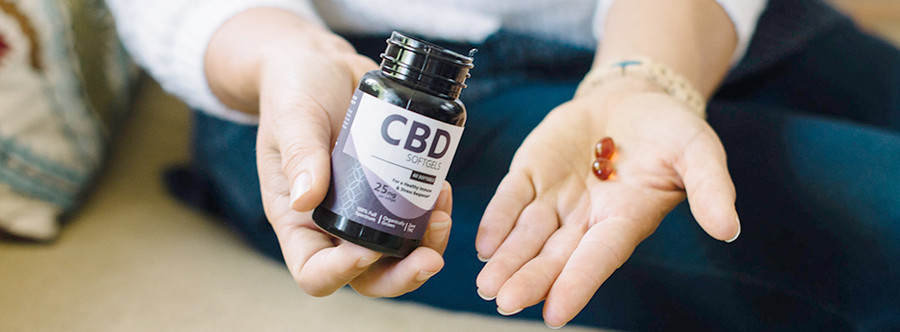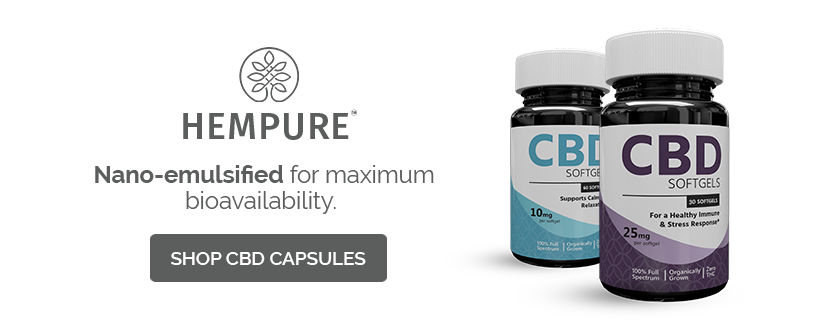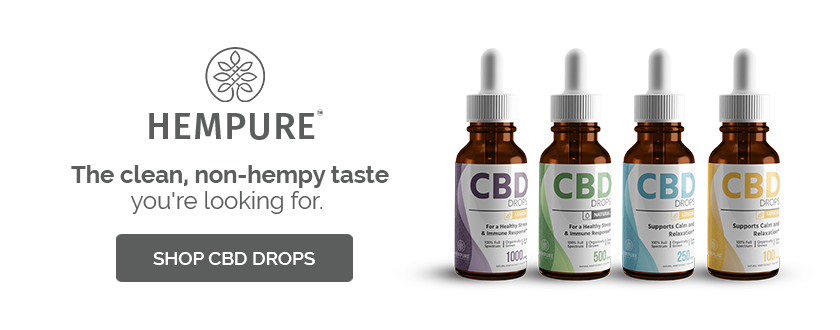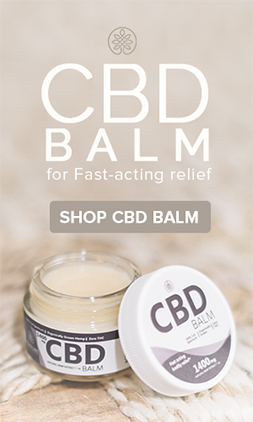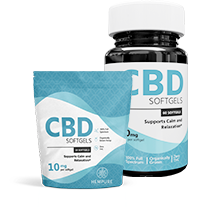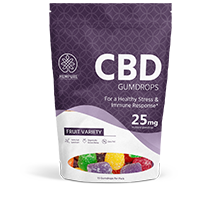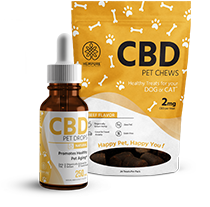CBD Capsules v/s CBD Oil: Which Should You Use?
Sabina King on Nov 18th 2019
It’s tough being a consumer these days, when there are so many choices. From the brand of cereal you choose to the clothing you wear, choices are inescapable. For newcomers to CBD, there are a lot of choices to make too. Broad-spectrum or isolate? THC or no THC? And most importantly, how do you want to consume it? CBD comes in a number of different forms, capsules, tinctures and vapes being the most common. One may assume that since CBD capsules and oils are both taken by the mouth, that they’re pretty much the same. However, they’re actually quite different, and can be used in different ways. Let’s find out how.
What are CBD capsules and CBD oils?
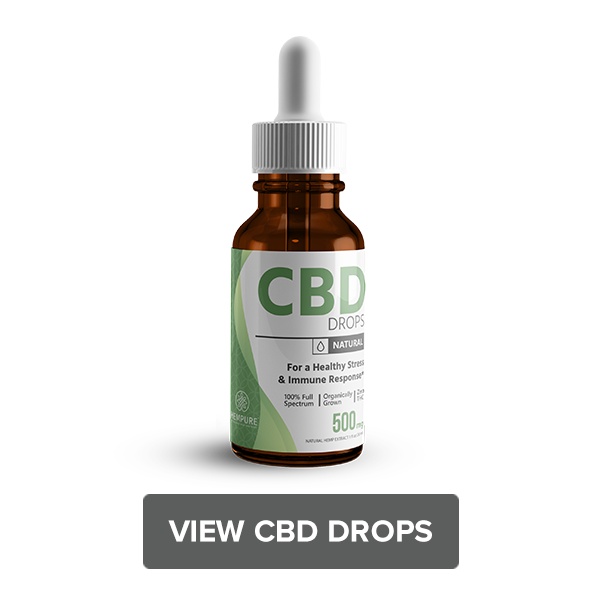
CBD oil, also called CBD tincture or CBD drops, is simply phytocannabinoid rich (PCR) hemp oil in a carrier agent and possibly some kind of flavoring. CBD capsules are PCR hemp oil with a carrier agent in capsule (usually softgel) form. The CBD oil is extracted from the hemp plant in the same way for both products.
The difference between CBD oil and CBD capsules.
There are many differences between CBD capsules and oil that will be relevant to any potential shopper. Make sure to check out our comparison chart at the end to help you choose!
Using CBD oil v/s CBD capsules.
CBD oil usually comes in a bottle with a dropper. The correct way to take CBD oil is by placing a few drops under the tongue and holding for 60-90 seconds before swallowing. This is also known as sublingual ingestion of CBD. CBD oil can also be mixed in with food or other liquids and consumed. However, that falls into the category of oral ingestion, not sublingual.
CBD capsules are to be taken like any other pill, by mouth with water or another liquid. This is referred to as oral ingestion of CBD.
The bioavailability of CBD oil v/s CBD capsules.
Bioavailability refers to the amount of a substance that reaches its target organ unchanged. High bioavailability means that a large amount of the compound successfully reaches the target organ. In the case of CBD, bioavailability refers to the amount of unchanged CBD that is absorbed and able to interact with the body’s endocannabinoid system.
The bioavailability of CBD drops is reasonably high, with an estimated 12-35% of CBD making its way to the bloodstream. This is primarily because when you hold the drops under your tongue, the CBD is absorbed by mucous membranes in the area and dispersed into the bloodstream. Keep in mind that this percentage falls when you mix CBD drops in food or drink, since it then must pass through the long winding digestive route, just as CBD capsules do.
The bioavailability of CBD capsules is lower than that of drops. When CBD is orally ingested in the form of capsules, it gets filtered through the digestive system before being metabolized by the liver, and only then getting released into the bloodstream. This is called the ‘first pass effect’. At every step of the process, some amount of CBD is lost. Estimates suggest that anywhere between 4-20% of CBD is absorbed when taken orally, but this increases exponentially when CBD is nano-emulsified in a carrier like MCT Oil. For comparison, most vitamins have absorption rates of between 10-40%
The onset time of CBD oil v/s CBD capsules.
Because CBD drops enter the bloodstream with relative ease, they tend to take effect pretty fast. Users report feeling benefits within 15 to 60 minutes of taking drops, depending on the strength and quantity of the oil. However, when taking CBD for pain relief or other such issues, one may need to top up in a few hours. While the effects come quite quickly, they fade quickly too (when compared to capsules).
CBD capsules take a while to kick in, owing to the aforementioned first pass effect. Users report that it takes anywhere between 1-2 hours to start feeling benefits. On the bright side, the effects can feel more pronounced and last longer than with sublingual ingestion of CBD. This makes capsules great for all-day, sustained support.
The taste of CBD oil v/s CBD capsules.
Those sensitive to flavor might find that CBD capsules work better for them. In capsule form, CBD oil has no distinguishable taste.
However, many commercially available CBD drops tend to have a grassy, hempy taste that can be unpleasant. This doesn’t necessarily mean you can’t take CBD drops, though. Hempure CBD drops, for instance, have a clean, non-hempy taste and great mouthfeel. They also come in refreshing lemon and peppermint flavors if you’re keen on adding them to a drink.
Dosing with CBD oil v/s CBD capsules.
CBD tincture comes with a dropper that is usually marked with measurements. Those unfamiliar with CBD, or droppers, or both, it’s likely that your dosage will vary a little bit for a while. Dosing with CBD drops requires slight focus, and modulating dosage according to your needs can also be complicated for beginners to learn. However, CBD drops give you the ability to microdose, which means you can take a smaller dose several times a day as opposed to one large dose.
CBD capsules require virtually no thought when it comes to dosing. You can be sure you’re getting the most consistent dose every time. Want to increase your dose? It’s as simple as doubling up. On the other hand, you can’t halve your dose or microdose using CBD capsules.
Versatility of CBD oil v/s CBD capsules.
CBD drops win when it comes to versatility. They can be taken sublingually or added to water, cocktails, coffee, and even food! While there is some debate about whether CBD added to food and drink is effective, many users find it enjoyable anyway. With a bottle of CBD drops in your purse, the possibilities are endless!
CBD capsules, on the other hand, can only be taken one way: orally.
The convenience of CBD oil v/s CBD capsules.
While CBD drops allow you several options for consumption, CBD capsules are definitive winners in terms of convenience. They fit right in to your morning vitamins, can be taken to the office for discreet dosing, and if you’re going on holiday you could leave the bottle behind and just take a few capsules with you.
The uses of CBD oil v/s CBD capsules.
The last and final distinction between CBD drops and capsules is a product of the differences we’ve already discussed. Because of the fast onset time and greater bioavailability, those looking to ease physical aches and pains or high stress benefit better from drops. For those looking for general wellness support – like a multivitamin – CBD capsules are a better choice.
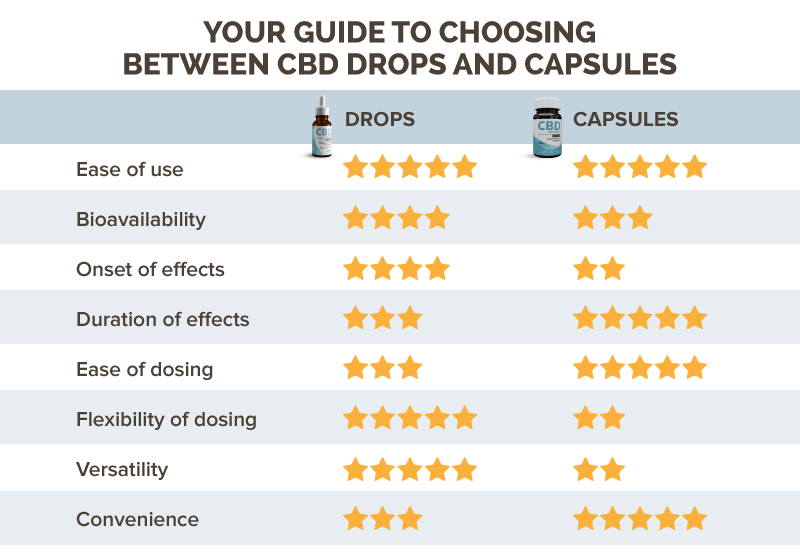
There is clearly no better choice between CBD drops and capsules, but there is probably a choice that is best for you and your needs. To put it simply: are you a no-fuss person with a busy schedule? CBD capsules are probably the way to go. Do you want to have fun with your CBD? Drops are an excellent choice. The best thing you can do is experiment with different forms of CBD before settling on what you like best.








